A Great Lakes Commons is informed by (and informs) a variety of topics and examples. Read and comment on these posts. If you have a story to share, contact us and post your story here.
Looking for something in particular? Try the Search or use the blog tags on the right.
Converting wild salmon into a commodity is a global fairytale that strips us of ancient and ancestral relations with the gift-giving earth. Weaving storytelling and music, this Norwegian-based performance activates our senses and asks for a critical restoration and re-storying of what it means to be a human living within a larger body. Great Lakes Commons was able to help bring this tour to the region through our trusted community of water protectors who model and crave a more animated and reciprocol relationship with the living waters.
Great Lakes Commons (GLC) is hosting a Living Great Lakes gathering at the Five Oaks Retreat Centre near Paris, Ontario, this October (11-13).
For white accomplices planning to or thinking about attending the gathering, GLC is organizing a two-hour online meet-up in September to unpack whiteness, settler colonialism, and the commons so as to teach each other how best to show up for this vital work on behalf of our human and nonhuman family.
On July 18th, GLC Education & Outreach Coordinator Paul Baines gave a workshop in Cambridge Ontario about our relationship with water. Based on the 2017 Water Friendship pilot project, this event was part of the Common Waters project. Common Waters is a community project that examines our relationship with water and provides a platform for us to discuss some of the most pressing issues of our time. It started with three reflections about how we think: We can not solve a problem with same kind of thinking that created it / We count and name what matters to us / If all you have is a hammer, then nails are what you go looking for.
You may have noticed more and more events and organizations are creating and announcing 'land acknowledgements' to name the Indigenous / traditional territories their work is performed on. While the content and expectation of these statements is evolving, how can our water-based project initiate honouring the lands and waters?
Lake Michigan is both plentiful and finite, and sustains life in the United States and Canada, where it is held in trust for all the people.
The Indigenous Environmental Justice Project (York) and Great Lakes Waterworks/Water Allies (New College/University of Toronto) are pleased to announce a joint winter event series. In these events, we draw on stories as a way of thinking forward on questions of water and water governance, love and sovereignty. In Anishinaabek teachings, winter has traditionally been, and remains, a time for story-telling, reflection, restoration, and envisioning, towards the moment when the sap (sugar water) flows, and the ice breaks in the spring.
There is no money to be made protecting water as the source of life. Financing Great Lakes care today comes through either altruistic charity or legislated compensation. Water restoration costs are a fractional expense for a pollution-based economic system. Advocating for a friendlier version of the current system denies its core impulses and interests. Let’s be honest -- degrading the living earth makes obscene amounts of money and defines our current story about “progress”. How can our collective and radical imaginations connect our desire for connecting money’s value with our values?
Motion. As water flows through our lives, how does it move us? What e-motions are stirring when we witness the state of the Great Lakes?In 2016, from Mother’s Day to Thanksgiving, Great Lakes Commons rallied people across the waters to journey in unity. Walk, bike, paddle, sail, or surf to connect with the lakes and others who are becoming great ancestors -- guardians of the Great Lakes. In 2019, can you journey part of the Great Lakes this year and add motion to this ongoing movement?
The Great Lakes Commons Initiative emerged from a recognition that, despite decades of activism and effort on the part of Indigenous peoples and dedicated local activists, the health of the Lakes has not notably improved and the waters continue to suffer. It has become clear that a transformation of our relationship to these waters and of the region’s governance of water is key for enabling the sustainable protection of the Lakes.
We invited Edward George to this talk since he has also been reading Emergent Strategy and feels it has great potential for water protection. He was lifted up hearing people talk from all sides of the Great Lakes showing their care. As a young Anishinaabe man, he started his journey with the sacred water walks and paddling the Great Lakes. He has a close relationship with the Great Lakes and with many people across the region. He’s learned from the land, elders, and those doing the work.
After hosting 2 conversations this summer with our GLC community, this post explores 9 principles of Adrienne Maree Brown’s book “Emergent Strategies” as it applies to protecting the Great Lakes. Martin Urbach recently did the same, but from his position as a music teacher. So this post was inspired by Martin’s approach and uses the same 9 ES principles gathered from the book. Let’s inquire what these could mean for a Great Lakes Commons.
On August 28th, we host our second conversation on how to adapt Adrienne Maree Brown’s book “Emergent Strategy” to building a Great Lakes Commons. A handful of us meet from different edges of the basin to share our thoughts. Over the next few months we’ll continue holding space for these ‘emergence’ conversations, since GLC is currently reviewing its role and focus in Great Lakes protection –- two related blog posts are the ones on mapping our movement and unsettling the commons.
This Great Lakes Commons initiative emerged from a confluence of political, emotional, social, and ethical forces that are constantly changing. But how is GLC changing? At the end of July, we invited some of our longest and more curious supporters to talk about what 'emergence' means to them and how GLC can change. The event was inspired by the book Emergent Strategy: shaping change, changing worlds, by Adrienne Maree Brown, since she has laid out many key principles and practices for looking at social movements through the lens of "emergence".
Nestlé's bottled water takings, the privatization of water infrastructure and access to clean affordable water impact Great Lakes communities and Indigenous rights. Residents, Indigenous representatives, and water groups came together in Flint, Michigan last September to oppose the commodification and privatization of water and unsettle water sovereignty.
What if we could name and categorize our water protection work here in the Great Lakes as well as we can name and categorize the issues? Yes, naming the work of water protection.Let's look at a few frameworks that can hopefully bring clarity, alignment, and energy to our Great Lakes Commons movement.
From the start, Great Lakes Commons has been seeding a transformative approach to current water governance. Using the histories and frameworks from both 'commons' and 'Indigenous' sources, we continue to map how these principles and practices enrich our connection and protection with these waters. But there's always also been a critical tension between these sources. Craig Fortier's new book Unsettling the Commons: social movements within, against, and beyond settler colonialism helps us name and integrate this tension.
In this age of endless easy petitions and staged town halls, surely we've reached the tipping point for public consultation and policy input. Rule makers want our opinion about stopping bottled water, burying nuclear waste, tar sands pipelines, micro-plastics, water shut offs, boil water advisories, nutrient overload, and the list goes on. But rather than being consulted by the rule makers, what if we organized better ways to set the rules ourselves?
Water justice is not just about changing the distribution of water access and benefits, but access to the water governing rules too. The human right to water is a challenge globally and even here in the Great Lakes too. In recent years, the struggle for clean and affordable water has risen in Flint, Detroit, and in over 100 First Nations across Canada. This post presents 2 examples of how Indigenous nations are taking back some control over how the waters are governed.
“There is a fish in me,” claimed the poet Carl Sandburg. John Muir said: “Rivers flow not past, but through us." Overly poetic? How about this: “We exist to advance the sources of creation and creativity. Refresh your mind and restore your body. Life. Water. Inspiration.” This message adorns a water bottle – “LIFE WTR” – bottled by PepsiCo and sold for $2 per liter. What runs through us if not “life water”? Our brains and hearts are 75% water. Water isn’t a luxury item. We can survive for only 3-5 days without water. Don’t try this at home.
Great Lakes Commons co-hosted a Water Summit in Flint this fall as part of a union of water organizations challenging Nestlé on its water bottling and calling an end the tap water crises in Flint, Detroit, and Indigenous nations. GLC hosted a workshop called "The Colonial Enclosure of Water" in the Great Lakes that showed several examples of how to re-centre Indigenous claims, perspectives, and rules for water governance.
Protected solely as a resource, water is threatened most by our collective denial that water is much more -- it is also the source of many vital relationships.The Water Friendship project aims to name these relationships, present their value and role in water protection, and offer concrete actions to guide water policy, curriculum, and advocacy. Additionally, uncovering lost connections to water can connect people across different cultures, professions, and locations.
3 field dispatches from the 2016 folk opera tour "The Wastelands" performed by Children of the Wild. Here we visit Lorain (Ohio) Fon-du-Lac (Minnesota) and the Straits of Mackinac (Michigan) to hear the voices of poets, elders, and musicians calling out for a renewed relationship with the lands and waters. Includes 3 short videos.
The 2008 financial crisis was ripe for a meltdown since those most literate with the world’s financial laws and limits were accomplices in the damage. An obscure and unquestioned governance system was the ideal setting for public negligence and private greed. 2008 proved that banks are not “too big to fail.” The regulators and traders skirted responsibility and hit a windfall, while about 10 trillion dollars was taken from people’s financial assets. The system crashed, the banks failed their customers, and yet in 2017 it is still business as usual. In 2017 we should be wondering about the Great Lakes: will they crash as well?
What about the social bonds we have with water? Are we a good friend to water? Since we are in a relationship with water, what indicators do we have for measuring the quality of this relationship?
Whether we acknowledge it yet or not, we live in a world built on relationships. The environment is not a collection of resources. Environmental health is not a computation of biodiversity (the number of species) and elemental exchanges (water, air, soil, sunlight). What mainstream society has labelled ‘the environment’ is an illusion of separation. We are the environment.
While having money is private affair, the value of money is a commons. Like many other commons, money is a social agreement on what we value and how that value is exchanged and passed on. Let’s imagine for a moment.
Let’s imagine that the value of money is tied to the quality and availability of water to serve life in the Great Lakes basin. Since we are water, the water’s benefit is our benefit. We know economics is a sub-system of ecology and our money system needs to reflect this, not subvert it.
Over the past year Great Lakes Commons has been working with partners to put together a Charter Toolkit to help communities and individuals protect water as a shared and sacred commons. The Commons Charter inspired the resources developed for the toolkit. The Charter’s themes of personal responsibility, commons governance, water protection, and Indigenous rights (just to name a few) are reflected in this collection of tools.
when the wind blows from north to south
i wish for better words to line my mouth
to keep the birds flying, the fish swimming
for Anishnaabek everywhere to keep winning
for semaa to keep growing and new leaders to keep showing
their faces to the world, and changing the world with their knowing
On December 8, Great Lakes Commons hosted another campfire discussion with supporters across the basin. For the past several weeks and months, everyone concerned about water protection, protecting the sacred, and Indigenous rights have been following this story -- a story pitting people against profits, water against oil, and ceremony and treaty law against state and military power. From the shores of Lakes Ontario, MIchigan, and Simcoe about 10 GLC supporters came together share experiences of visiting the Dakota Nation, the Standing Rock Tribe, and the water protector camps. You can listen to our discussion too.
On November 29, 2016, 12 educators from around the Great Lakes started a conversation on the tools and methods to integrate a 'water curriculum' in shared classrooms and communities. This confluence was organized and hosted by Bonnie McElhinny (University of Toronto) and Paul Baines (Great Lakes Commons). Each participant was asked to talk about their experiences and background in water education and to consider the following questions:
- How do you engage students?
- What is one problem, question, or resource that remains unaddressed or unavailable for you?
- What opportunities do you see for educators and students connecting across the Great Lakes?
We might as well frame this stage of Western history as a time of fragedy. Fragedy, to buck the urban dictionary trend, is a drama so comical that its overwhelmingly ludicrous improbabilities trigger in its audience a pathos so fragile that the characters’ plight is no longer funny and enters the realm of the absurd. You know we are living in fragic times when Alec Baldwin and Larry David play the president-elect and the loser with a spookier believability than the Donald and Bernie who play these characters, respectively, in real life.
This is a story of inner growth in the midst of, what Lindsay Swan, our Dante, would call dire outer circumstance. Trigger warning: the following contains mention of botulism and Russian propaganda.
There is a common concern around water privatization in the Great Lakes. Commercial bottled water is at the heart of this issue but is also involves looking at public water systems, water access and equity, and legal standards. There are also cultural and societal roles involved. It's a complicated matter that experts and advocates are trying to address. Great Lakes Commons helps connect communities around shared water issues like this. We recently hosted a conversation with experts and advocates from Michigan and Ontario. The goal of the meeting was to identify, learn and share key ideas and strategies on how to address bottled water and water privatizations in the Great Lakes region.
This week Canada announced it was phasing out coal use for making electricity by 2030 even though 4 Provinces still burn coal to boil water to turn a turbine to generate a current. Steam engine technology is 300 years old and it's at work everyday in the Great Lakes for coal (in all 8 U.S. states) and for nuclear power (7 U.S. states and Ontario).
The lifecycle and controlled explosions of coal and uranium on this planet are at the heart of our water dystopia.
At a recent freshwater gathering, participants used the terms "water leaders" and "water decision-makers" interchangeably. It seemed odd since Great Lakes Commons was founded on the need to create more water leaders who are currently outside the decision-making institutions and processes. Two different identities.
While everyone at this gathering was easily a "water leader" because they work tirelessly to protect water across Turtle Island, we were certainly not making the Federal, Provincial, State or Municipal rules that impact water -- the "decision-makers". If we were, the waters would likely be much more clean than they are now.
WE, THE PEOPLE OF THE GREAT LAKES, LOVE AND DEPEND UPON OUR WATERS TO SUSTAIN OUR LIVES, OUR COMMUNITIES AND ALL LIFE IN OUR ECOSYSTEM
That is the first line of the Great Lakes Charter Declaration, a 2014 collaborative effort that lays the foundation for a Great Lakes Commons. "We, the people of the Great Lakes" are diverse.
“We organize around the seeds of the trees under which we want to live.”
So says Ricardo Levins Morales, organizer of organizers, an artist who has been cultivating, among other seeds, the Great Lakes Commons ever since the grassroots movement was planted in 2011. He says this, as a matter of business, over a GLC visioning call from his home in Minneapolis. We are in Petoskey, a crooked tree town on Little Traverse Bay of Lake Michigan, trying our best staying in touch with the people behind the movement we want to enter.
Building on this idea of a Cycle, we started our workshop with the Cycle between what we get and what we say thanks for. We called this the 'water ethics cycle' and our goal was to make a 'compass of care' to help guide our way. As students head by to class this month, Great Lakes Commons offers the ideas, processes, and examples below to help spin this water ethics cycle and to create water leaders who know hydrology and how to say thanks.
On June 21, eight American states that border the Great Lakes agreed to let the City of Waukesha (in Wisconsin) to withdraw water from Lake Michigan. This decision has generated a lot of conversation and concern about the Great Lakes, but what has been missing when we include questions about sewage, bottled water, trade, and the current water agreements responsible for governance?
The Great Lakes bioregion is gifted with 20% of the world's surface freshwater and each day it gives 40 million people their drinking water. How we understand and govern bottled water in this region is critical. This map should not exist. Information on water withdrawals is rarely integrated across political boundaries and is seldom aligned with watershed boundaries. We need to question how this patchwork of data, permits, and politics affects our bond with water.
Children of the Wild is journeying across the Great Lakes. This dispatch comes from the first stop of that journey, in Buffalo, NY. Featuring footage from their Silo City performance and a story from an east side resident named Ms. Virginia Golden, who has been fighting to get an old GM manufacturing plant that has been leaching PCBs for decades across the street from her house on a brownfield cleanup list.
What good is art in the face of ecological tragedy? That might not be the most fruitful lead; let me come at it from another angle.
The Erie algae blooms are smaller this year than last. Some might see in this news a sign of progress: Toledo’s drinking water shouldn’t be cut off this summer (at least not for environmental reasons). But the myth of progress, the story that things in this world are getting better, dissipates, it seems, the deeper you dive into its waters, or the farther out of them you rise.
It was an early morning on the shores of Hamilton Harbour. A group of about 30 Indigenous and non-Indigenous allies gathered with a collective purpose. It was one based in love for the water, and somewhere deep inside, a dignified rage that fuelled our motivation to walk 42 kilometres in three days.
This is how our journey seems to move: in waves of excitement, followed by small waves of apprehension. Scientists have a name for subtle movements like these: seiches—not to be confused with the tides, seiches occur when the atmosphere shifts and the winds push the water from one side of the lake to the other. Our arrival at St. John’s Institute in Cleveland—our new performance site—has signalled a similar shift in atmosphere.
Back in May my friends Collin Kloecker and Shanai Matteson asked me to come speak on a panel, (or in this case, in a circle). This would be the first in a series of events celebrating the opening of their new project; The Water Bar.
When packing for a good journey, it's hard to remember everything you might need along the way.
Great Lakes Commons has been busy this winter and spring collaborating with people and projects across the bioregion to animate a 'Commons Journey'. It was hard to keep up with all the interest and support.
In 2015 Ontario passed the Great Lakes Protection Act. One key difference to this Act was the establishment of Guardians Council. The Great Lakes Commons community is encouraged by this difference because the focus on 'Guardianship' aligns well with many of our principles. But how might a Guardian protect the waters differently than a typical stakeholder? What can a Great Lakes Commons offer this new Council?
As water protectors we often talk of water rights and water responsibilities. These words go hand-in-hand like peace and justice, but let's decode what the differences are and the impacts each has on social movements and water care.
On behalf of the “Great Nibi Gathering” Planning Committee and with great excitement we are honoured to let you know about an incredible gathering this summer. It will take place at Ojibway Park in Garden River First Nation, Ontario July 14-17, 2016. We are issuing this open invitation and call out to all Anishinaabeg, Metis and supporters to come to the shores of Lake Huron to meet, discuss, and hold ceremony together for the waters of the Great Lakes and for future generations.
We started with how we arrived at the commons framework and our mutual need for an an integrated approach. For one person this was the combination of working across Canada/USA borders with regional Ojibwe tribes, having a lake-wide perspective lead by many grassroots efforts, participating in discussions about the Rights for future generations, and learning from the leadership of Anishinaabe women.
November 19th marked the our 4th Commons Charter online event -- a bioregional meetup for supporters to share why this Charter is vital and how we (as individuals and as a group) could awaken this commons agreement across the various shorelines.
A Great Lakes Commons understands water as a source of life, not just as a resource. It also questions popular claims about who owns water and the decision-making processes for how water is used. Let's look at one of the best examples of an anti-commons: bottled water. There are currently hundreds of permits to take freshwater in the Great Lakes bioregion for the sole purpose of packaging it up and selling it for massive corporate profits -- such as 700 million dollars for Nestle in 2014.
Recreation. What is recreation? Canadians love the outdoors and especially water sports such as sailing, fishing, kayaking, and canoeing. Some water groups work closely with recreationalists since being on and enjoying the water fits well with stewardship. On September 27th, we partnered with Sylvia Plain from the Great Lakes Canoe Journey project to re-introduce our group to the canoe.
Keeping the spirit of community alive across the Great Lakes has its challenges. But it's always rejuvenating to talk with Charter Supporters on why they are a commoner. On July 16th, folks from several shores met through on-line video and talked about how the Great Lakes Commons Charter is alive in their lives, projects, and passions.
For the past few years, a dedicated team at GLC has been busy. How do we co-create a Great Lakes Commons with so many obstacles? As you can see by the Background section of our website, there’s a long story of failure we are trying to shift. As a small initiative with BIG goals (to protect the Great Lakes as a shared and sacred commons) what kind of work makes this shift possible?
On a bicycle it is impossible to be numbed by convenience. You have to look around. You embrace what comes. You ride it out, ride through it. Ironically, this is also the same path water follows. Not ironic, water was my riding partner for 15 days this summer as I pedaled my bicycle around Lake Superior. Water does not stop to complain and proliferate. It takes the shape of what it passes over, expresses it, and carries on.
Water takings have been occurring for over 100 years, with the first bottling permit established in 1912. In recent decades a surge in demand has allowed for an expansion in commercial water extractions throughout Canada – specifically centered in Southern Ontario and British Columbia.
Alongside this surge, the amount of water taken daily has also increased to a staggering rate at multiple plants; i.e. in 2011 Nestle applied for a permit to take 3.6 million litres per day for bottling purposes. This is nearly the size of 1.5 olympic-sized swimming pools of water being extracted everyday.
We got an email back in April about a poet, musician, and cyclist planning to ride around Lake Superior and talk about a water commons. Ben Weaver calls Minneapolis home and sets off today to extend his circle and community of care.
Summer is here and what more is there to do than thank the waters in our lives and bodies. June 6th marked the 100in1Day festival in Toronto where locals left their individual turfs to co-create over 100 'urban interventions' to re-make the city into a home. One day everyday could be like 100in1Day.
Access -- one of the many key elements to making a commons. Access to clean water sources, access to decision making processes, and access to information and communication. One simple step in making the Great Lakes Commons Charter more accessible is making a pocket version -- done.
What is water? A seemingly simple question but the impacts that flow from your answer shape our delicate relationship with this blue earth.
The “common” ways of looking at water are all around us. Bottled water commercials, conservation campaigns, government plans, purification technologies, recreational dreams, and scientific discoveries all talk about water as a commodity, a resource, a playground, and a chemical bond known as H2O.
Toronto has been developing a Great Lakes Commons workshop that introduces how GLC is different from many other water protection organizations.
Called 'Becoming Great Ancestors', the 90-minute workshop offers 8 different ways we can relate to water. 4 of these are called "common ways" and 4 are called "commons ways". See the slight difference. You can see and download a copy of the workshop outline and materials if you'd like to host a similar workshop in your community.
As the Great Lakes Commons initiative braids public trust and Indigenous laws for protecting water, new ideas are emerging.
Let's look at 2 examples.
We are happy to share our new website with clearer organization and new photos (with a winter theme). We have more updates to make and welcome your suggestions -- and photos. We'll be updating the photos every season so start sending in best spring photos. We would also like images (photos, paintings, carvings, etc) that help illustrate our transformative approach:
Melanie Ariens is an environmental advocate and volunteer community coordinator with diverse interests, skills and a willingness to learn just about anything to achieve a set goal. She received her degree in painting, drawing and printmaking from UWM in 1992 and worked there as the print shop assistant. She was formerly represented by La Galleria Del Conte (now closed) and participated in many group and juried shows.
Months in the making, We Are Water: Beachfront Celebration of Milwaukee’s Water had its debut last night on Bradford Beach. The celebration took many forms, including recitations of poetry and spoken word, a dance performance, and a solemn spiritual ceremony led by members of a local Indian community.
Detroit’s emergency manager filed for bankruptcy in July 2013 to force creditors to negotiate a bankruptcy plan that would slash the city’s unwieldy debt. Last month, the U.S. Bankruptcy Court in Detroit approved a plan that would over time give Detroit a chance to survive. Missing from the plan, however, is any mention of the disturbance and threat to the rights to water and health of Detroit’s poor caused by the abrupt shut off of their water service.
Calling on Indigenous Peoples to re-establish our responsibilities to the waters and those yet unborn by working collaboratively with one common vision – WATER IS LIFE, without healthy waters, nothing will survive.
From October 3-5 I participated in the Living Waters Rally near Ottawa, Ontario -- unceded territory of the Algonquin people. Over 130 people worked on strengthening their knowledge and capacity for protecting freshwater in Canada.
On October 8, 2014 the Cook County Board of Commissioners unanimously passed a resolution opposing the construction of a nuclear waste repository on Lake Huron as proposed by Ontario Power Generation. This is a refreshing recognition of how water decisions in other parts of the Lakes affect us all.
Boats going through an algae bloom on Lake Erie near Toledo, Ohio. The Great Lakes Commission wants to slash the amount of phosphorus flowing into Lake Erie, the source of toxic algae outbreaks and the reason the city of Toledo lost its drinking water for two days this past summer.
Most Milwaukeeans value living in close proximity to a large body of water, but what are we willing to do to celebrate it? Improve it? Protect it? The year-old Milwaukee Water Commons is a project committed to fostering connection, collaboration and leadership on behalf of the bodies of water in our community.
We did it! After just 3 weeks of running our crowdfunding campaign for the Great Lakes Commons Map, we exceeded our $3,000 goal and currently have $4,601. The campaign will fund the production and give gratitude for water teachings by Anishinaabe women.
Months in the making, We Are Water: Beachfront Celebration of Milwaukee's Water had its debut last night on Bradford Beach. The celebration took many forms, including recitations of poetry and spoken word, a dance performance, and a solemn spiritual ceremony led by members of a local Indian community.
The idea is to get the entire community involved in Milwaukee's freshwater future. Alexa Bradley started the conversation almost three years ago. Bradley is a long time activist - and Milwaukee native, - who helped “incubate” the “Commons” idea in Minneapolis. Bradley went on to help create the Great Lakes Commons, that is taking shape in places like Toronto and Cleveland and especially in Milwaukee.
After last week's high profile protests and a stern rebuke by the bankruptcy judge, Detroit Water and Sewage Department is suspending water shutoffs in order to give people who cannot pay their bills an opportunity to work out a plan.
In late May, a team of Great Lakes commoners presented at the International Association for Great Lakes Research (IAGLR) conference in Hamilton, Ontario. Our session was entitled: Exploring the Idea of the Great Lakes as 'Commons', an unusual topic at a conference largely focused on scientific inquiry. And although our session started at 8:10am, we filled the room to standing room only capacity with about 60 curious and concerned environmental scientists.
At GLC we want to connect with you. We do our best with email messages and Facebook, Twitter, and Youtube updates – but there’s so much missing. Where can people who share the same passion and curiosity ‘meetup’ across a vast bioregion like the Great Lakes and work collaboratively to protect them?
Activists in Detroit have appealed to the United Nations over the city’s move to shut off the water of thousands of residents. The Detroit Water and Sewerage Department says half of its 323,000 accounts are delinquent and has begun turning off the taps of those who do not pay bills that total above $150 or that are 60 days late.
'Imagine the Great Lakes as shared waters cared for and protected by the entire region’s community. That’s the vision of a group called the Great Lakes Commons. Members are people from Indigenous Nations, Canada and the U.S. The organization is officially introducing its charter at a virtual meeting of nearly 100 people on Thursday.
We need a new response to the threats to the Great Lakes. The Commons Charter is a participatory, community-led initiative to shape that vision and build community leadership for it around the Lakes.
This Saturday watch this dramatic story of the Bad River Band and their work to stop a bad mining proposal in northern Wisconsin which threatens local waters and Lake Superior.
It is astonishing that such a proposal - nuclear waste storage on Lake Huron - even stands a chance. In whose reality does nuclear waste belong near drinking water for millions of people? The kind of thinking that generated such an idea reflects not only a profound disconnection from our waters but also from all those who depend on them for life today and in generations to come. A commons approach would mean that we take responsibility for the impact of our actions into the future and prioritize sustaining life. So glad to see that people are standing up to stave off this insanity.
On May 13, 2014, join Dr. Don Scavia (University of Michigan), Dave Dempsey (International Joint Commission), Codi Yeager-Kozacek (Circle of Blue Correspondent), and Jim Olson (Founder, FLOW) for an interactive webinar discussion on nutrient pollution and resulting harmful algal blooms (HABs) in the Great Lakes, and how the public and the states together can utilize the public trust doctrine framework as an added decision-making tool to address HABs in Lake Erie and beyond.
The Ontario Shorewalk Association joins the call for a “Right of Passage”, or public walking rights, on our Great Lakes Shoreline. This echoes similar efforts emerging elsewhere in the Lakes bio-region and is congruent with our understanding of these waters as a commons: owned by no one, cared for by all.
The current conversation this week about the War on Poverty is long overdue; especially welcome is a noisy clamor to raise the minimum wage. At the same time, families’ budgets are burdened by the increase in basic living expenses.. An important front in the war on poverty is shrinking those expenses. Let’s take a look at water.
This paper is intended to serve as a background, a call to understanding and a call to action on an exciting new proposal to designate the Great Lakes and its tributary waters as a lived Commons, to be shared, protected, carefully managed and enjoyed by all who live around them.
WISCONSIN has been an environmental leader since 1910, when the state’s voters approved a constitutional amendment promoting forest and water conservation. Decades later, pioneering local environmentalists like Aldo Leopold and Senator Gaylord Nelson, who founded Earth Day in 1970, helped forge the nation’s ecological conscience. But now, after the recent passage of a bill that would allow for the construction of what could be the world’s largest open-pit iron ore mine, Wisconsin’s admirable history of environmental stewardship is under attack.
From October 18 to 21, about seven thousand young people gathered in Pittsburgh for Power Shift, a four-day conference for young environmental and social activists. While most were members of campus environmental organizations, a few were activists working on social and environmental justice issues in the places they call home—fighting King Coal in Appalachia, growing gardens in Detroit, and lobbying for racial justice in Florida. For these youth, the fight is urgent and immediate.
First, water is a human right and must be more equitably shared. The United Nations has recognized that drinking water and sanitation are fundamental rights and that governments have obligations not only to supply these services to their people but also to prevent harm to source water.
Did you know that the human lungs are made of 90 percent water? Did you know that chemicals illegal in North America are now making their way to the Great Lakes from China? Did you know that, if it were a country, the Great Lakes would be the second-largest economic unit on Earth?
As governments approve tar sands oil and fracking projects around the Great Lakes, the Council of Canadians warns that these extreme energy projects are putting the Great Lakes in peril. Council of Canadians Chairperson Maude Barlow outlines the web of pipelines, refineries and oil shipments that threaten the Lakes in her new report released today entitled,
On Saturday, March 8 the Milwaukee Water Commons held its first-ever Leadership Training. Over twenty water leaders from across our city will help shape Milwaukee’s water future and awaken our connections to water in six neighborhoods.
A year and a half ago, On The Commons brought 70 people together from around the Great Lakes bioregion to explore how a commons approach might help us create a life giving future for our Lakes. Since then, the Great Lakes Commons has continued to come to life in many ways, with a growing network of people taking up this emerging initiative and finding ways to contribute.
- access
- algae
- animate
- anishinaabe
- art
- bad river band
- bankruptcy
- belonging
- ben weaver
- bike
- book
- bottled water
- buffalo
- ceremony
- charter
- Children of the Wild
- cleveland
- collaboration
- colonization
- commons charter
- commons map
- community
- conversation
- council of canadians
- currency
- decolonial
- design
- detroit
- diversion
- download
- emergence
- enclosure
- energy
- ethics
- event
- events
- First Peoples
- flint
- frames
- friendship
- gatherings
- gift
- governance
- grief
- guardianship
- guelph
- indigenous
- journey
- lake erie
- lake huron
- lake michigan
- lake superior
- Lakota Sioux
- leadership
- meetup
- michigan
- milwaukee
- milwaukee water commons
- money
- music
- nature rights
- nestle
- news
- nibi
- nuclear waste
- ohio
- ontario
- patterns
- performance
- personhood
- peterborough
- petition
- photos
- poem
- power
- privitization
- reclaiming
- reflection
- relationships
- report
- research
- responsibilities
- rights
- social movements
- standing rock
- strategy
- The Wastelands Opera
- thunder bay
- toronto
- treaties
- value
- video
- water as a human right
- water justice
- water permits
- water walk
- watershed
- we are water
- wisconsin
- workshop




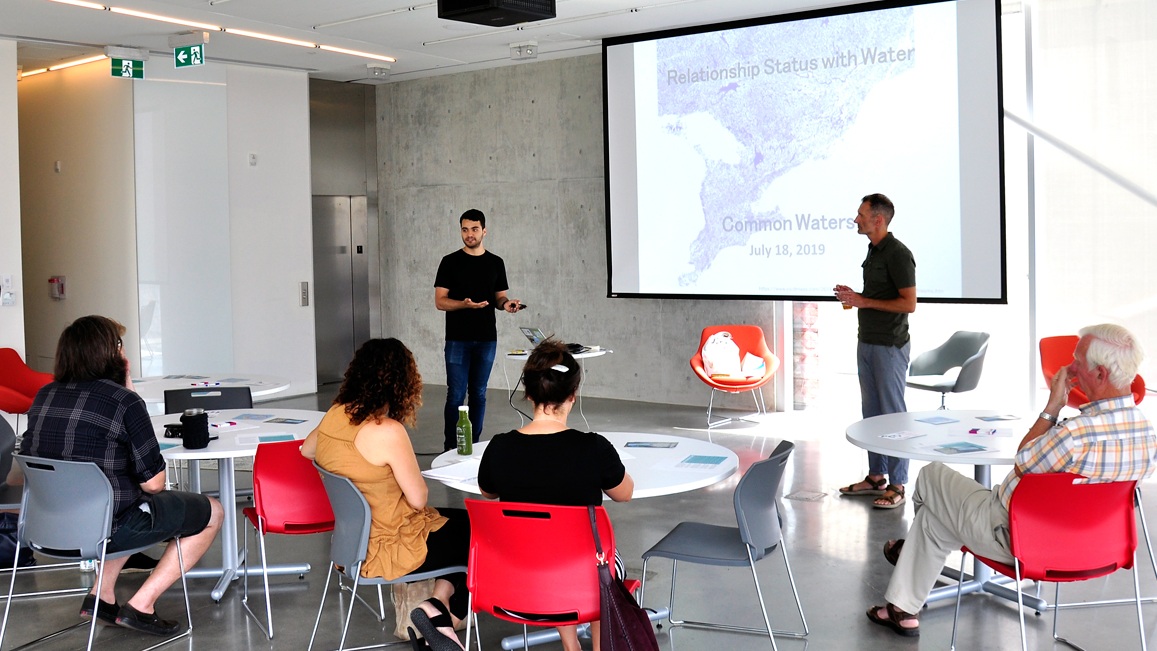

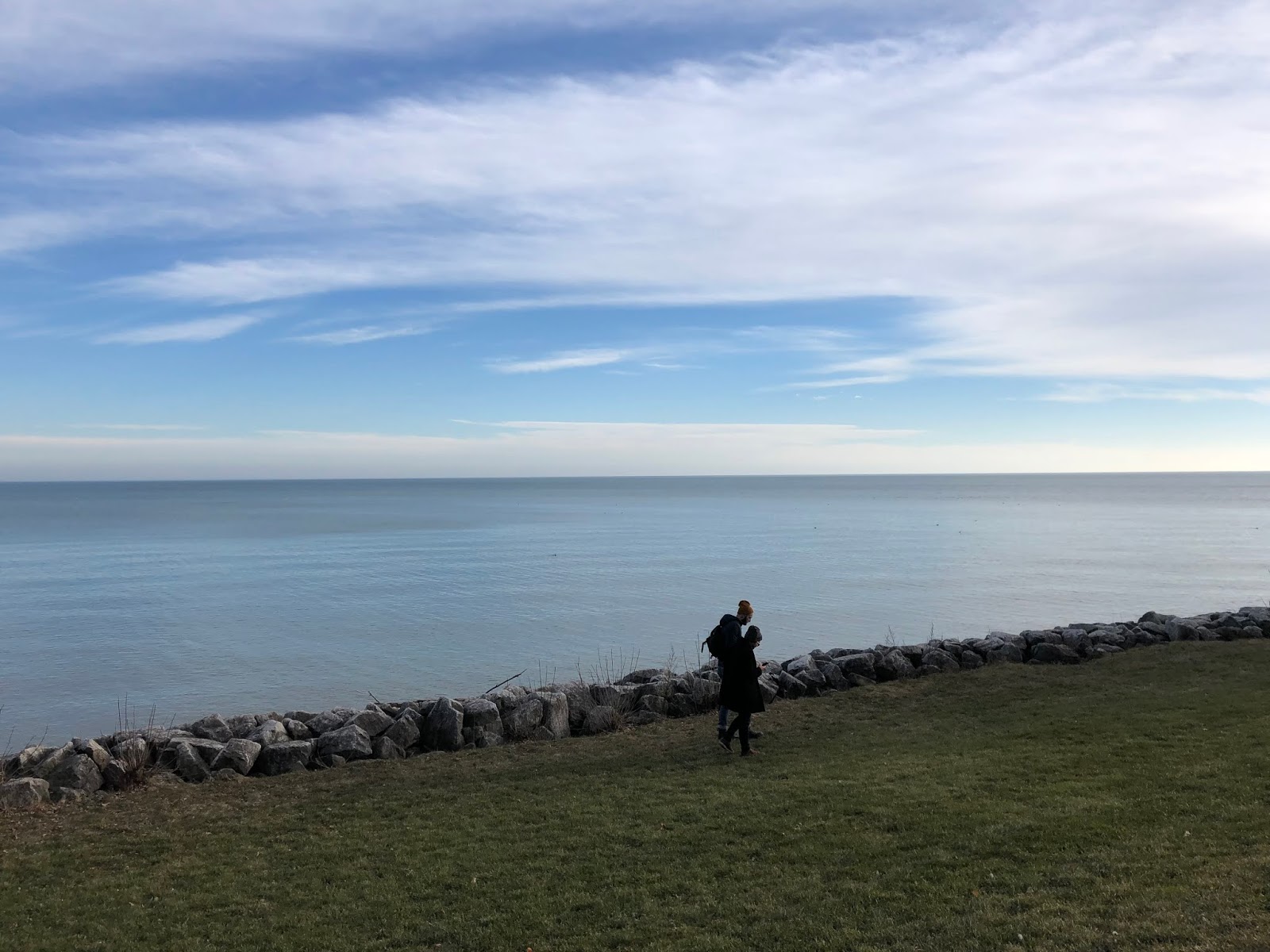





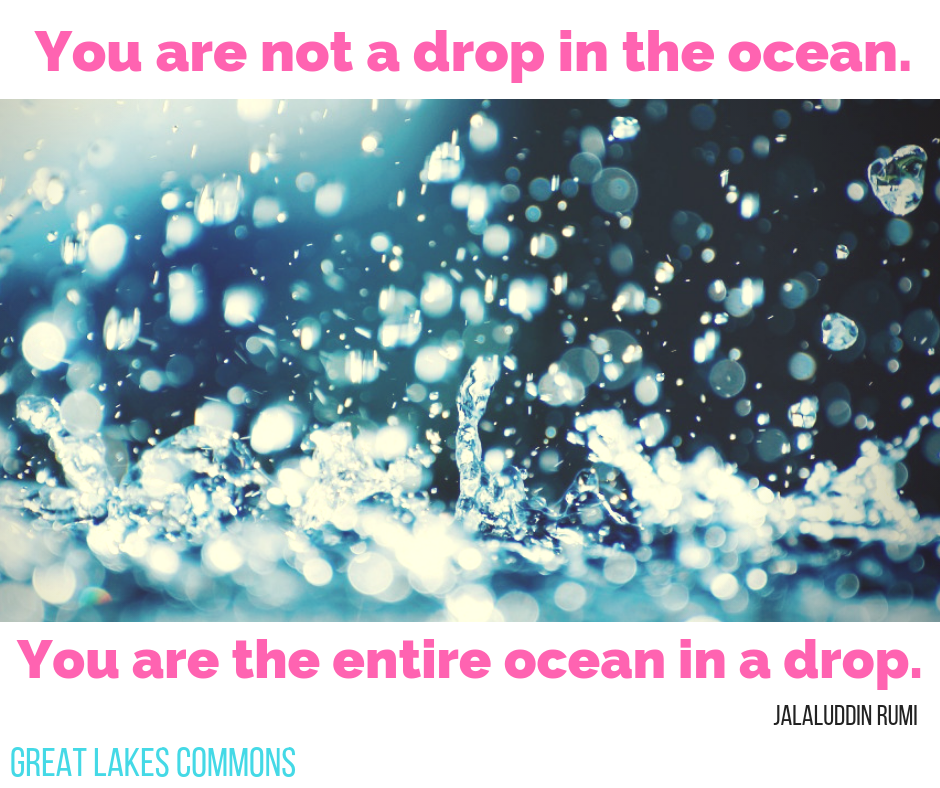






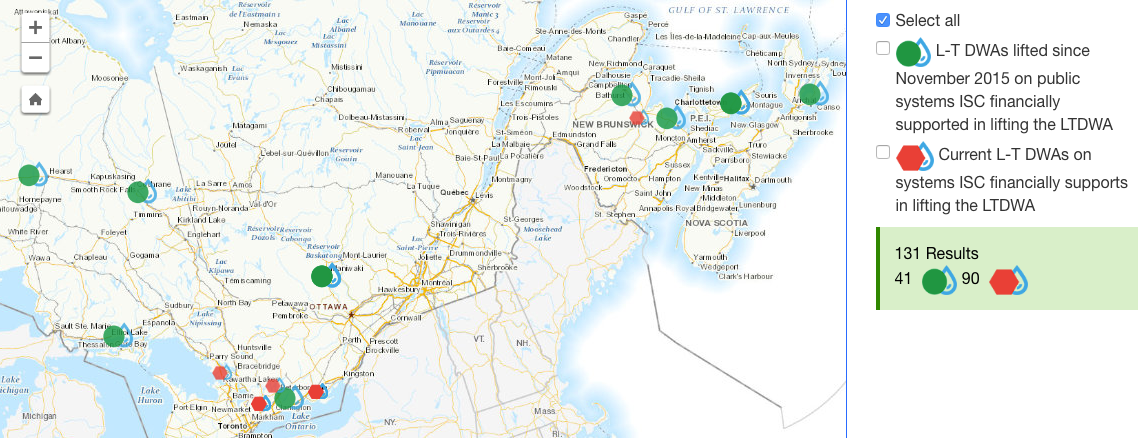
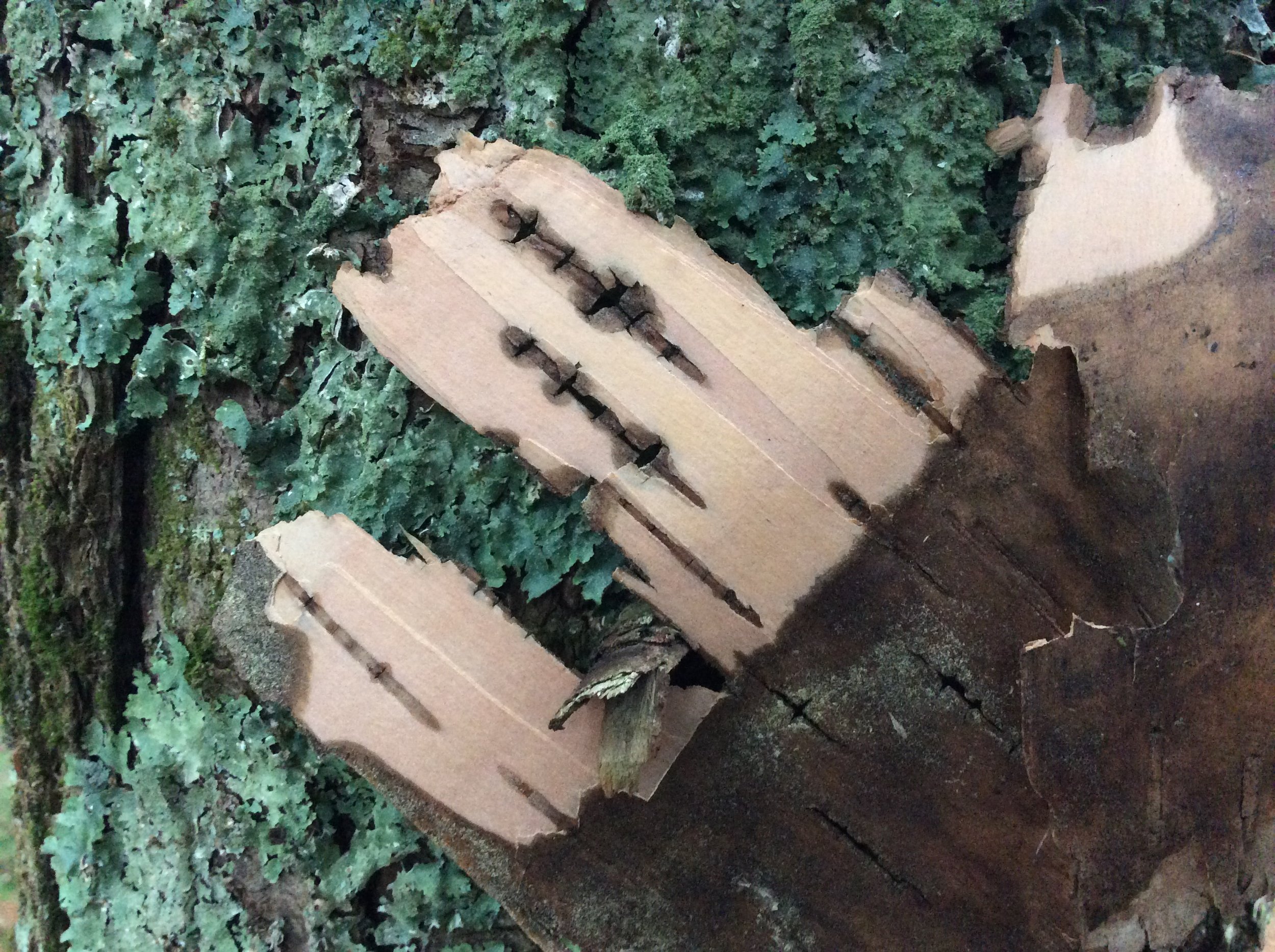













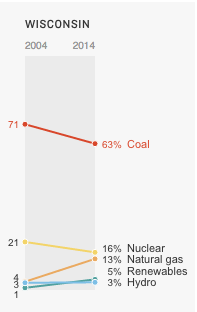

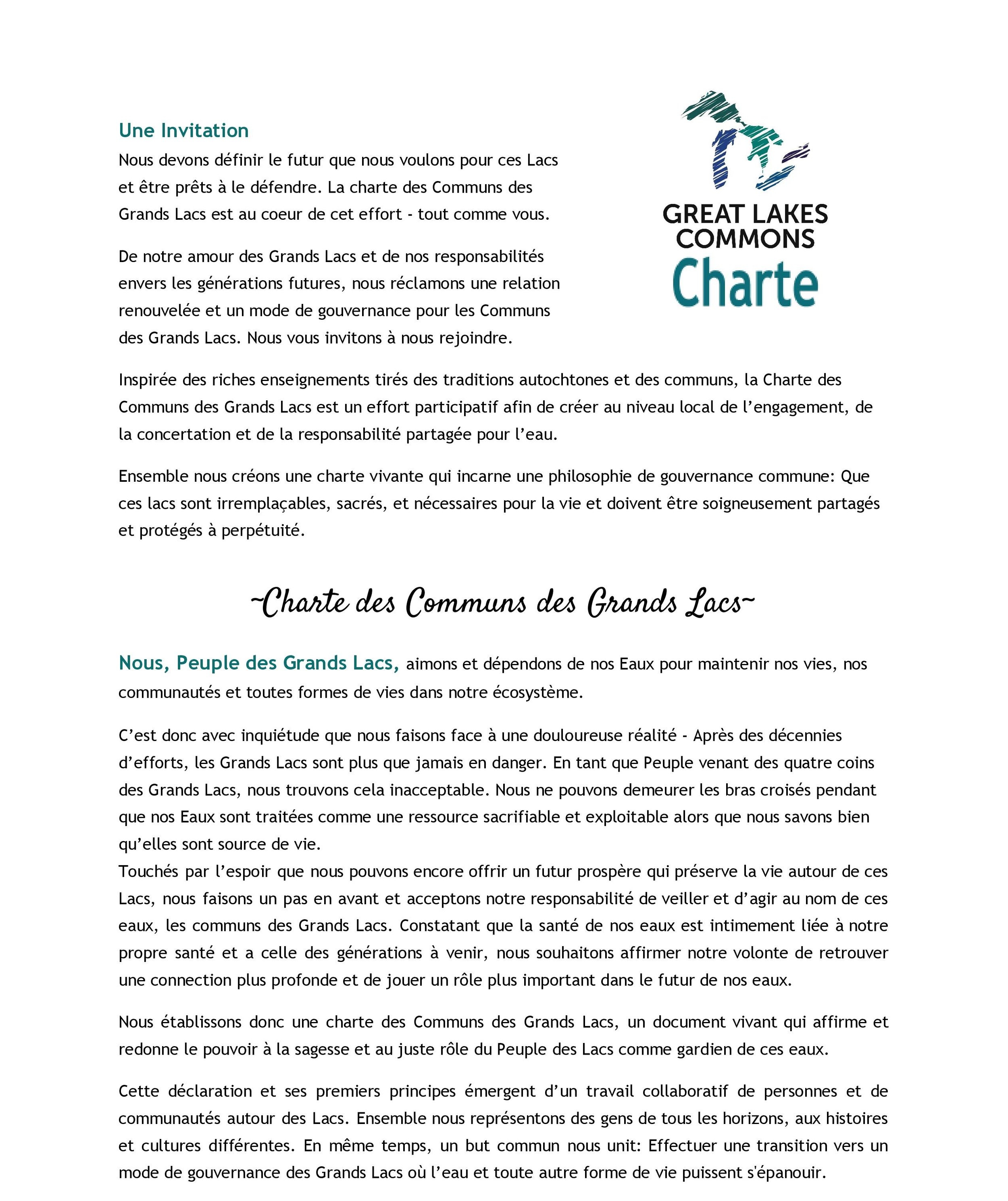

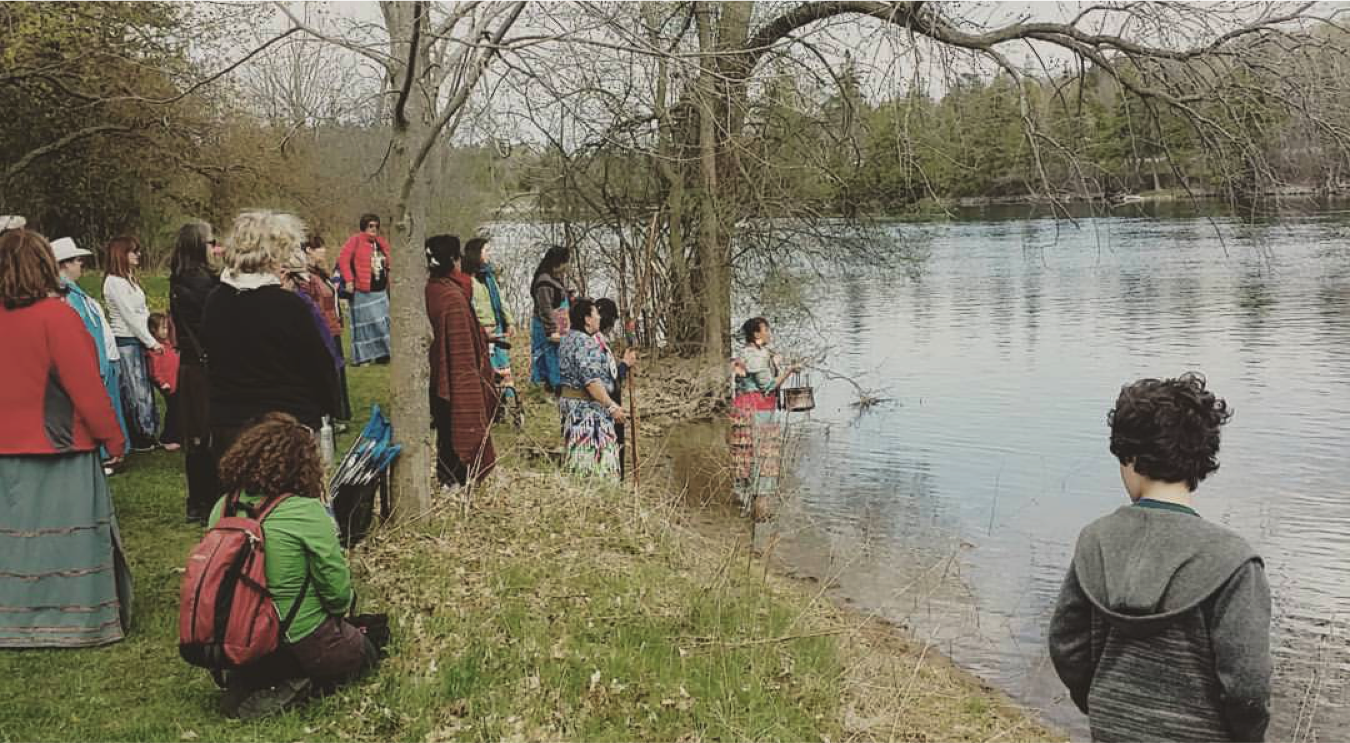














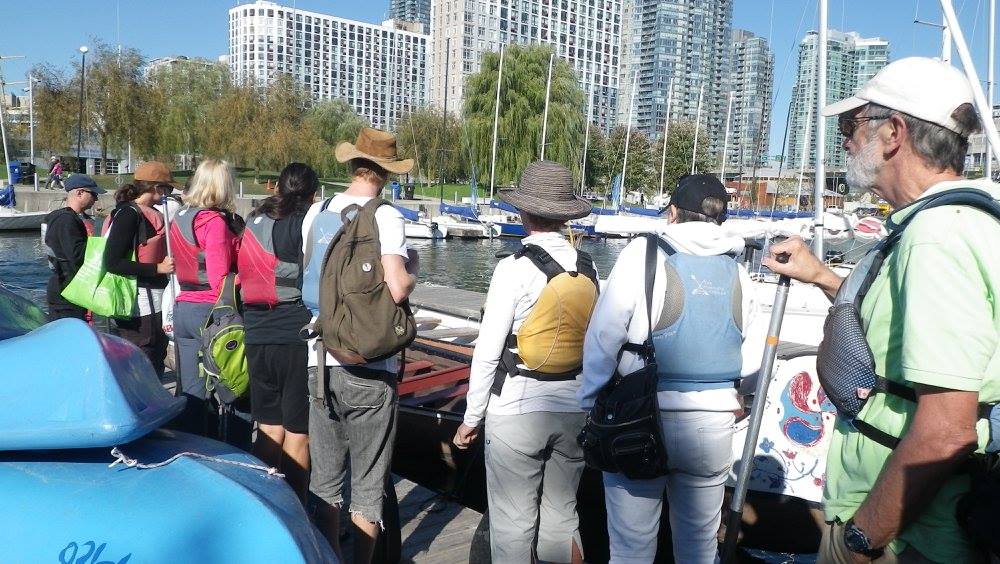
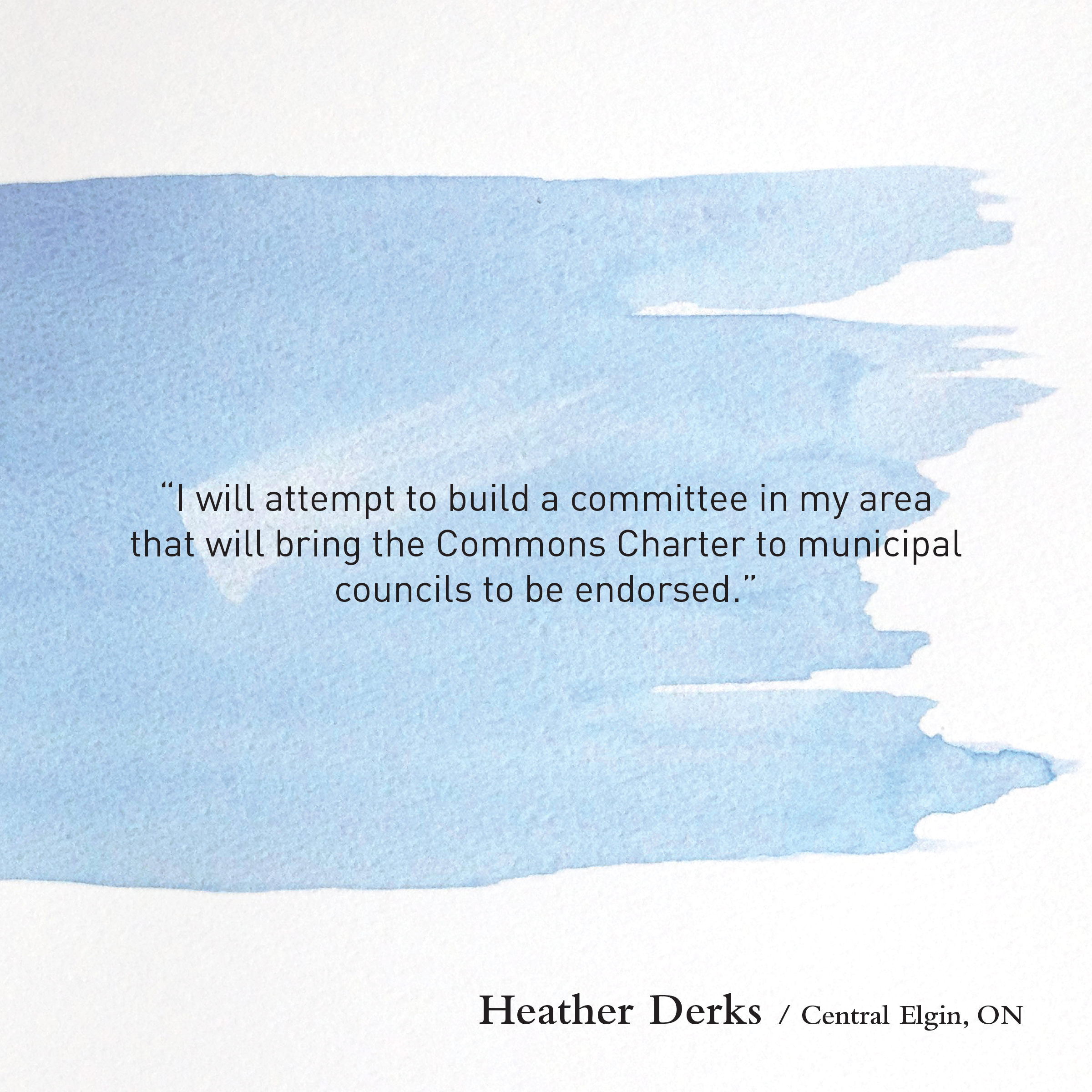














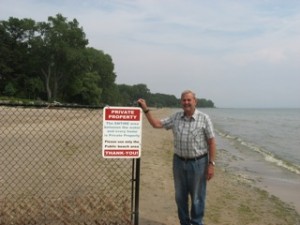








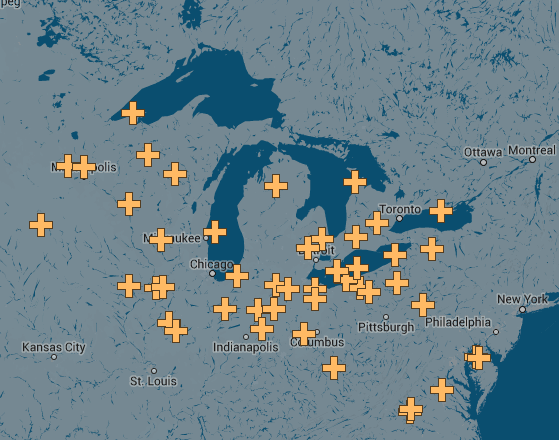
This post is a way to document many months of collaborative work for an in-person gathering on the banks of the Grand River near Paris Ontario. Through the leadership of Waasekom Niin and ongoing support by a small team (Laura Hamilton, Gus Ganley, Lindsay Swan, Elle Thoni, Michelle Woodhouse, Laura Gilbert, Todd Hoskins, Jessica Keeshig Martin, Danielle Boissoneau, Paul Baines and others) we spent months meeting online to design a weekend that was spirit centred, Indigenous led, and ally supported.